How to Install Chromium OS
Install Chromium OS for computers using CloudReady
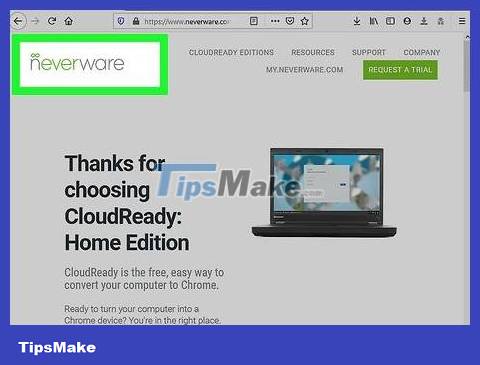
Download and install CloudReady at https://www.neverware.com/freedownload/ . CloudReady is the easiest method to install Chromium OS on your computer (link to download is below step 2). You need to download the appropriate version for your computer's operating system.
For example, if you are using a Windows 10 computer, click the Download USB Maker button .
On a Mac, you can click the 32-bit or 64-bit button, then go to https://guide.neverware.com/build-installer/working-mac-os/#download-cloudready to proceed. CloudReady installation instructions.
If you're having trouble loading CloudReady, you may need to update your BIOS, erase your drive, or disable the fast boot and secure boot features on Linux.
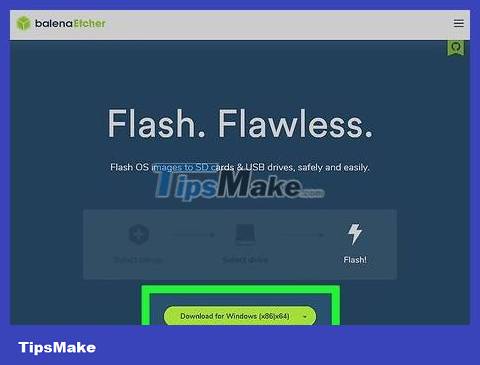
Download Etcher at https://www.balena.io/etcher/ . You need to click on the green download button to change the version if necessary.
Etcher will support writing operating system images to SD card or USB.
Install Etcher after downloading by launching the installer and following the on-screen instructions (Windows), or drag and drop the program icon into the Applications folder (Mac).

Burn CloudReady to a USB drive. You can find Etcher in the Start menu or Applications folder.
Click Select Image and select the downloaded CloudReady file.
Click Select Drive and select the formatted USB drive.
Click Flash! to start the recording process. It may take about 10 minutes to burn CloudReady to a USB drive, but you'll need to wait for Etcher to notify you that it's 100% complete before closing the program.
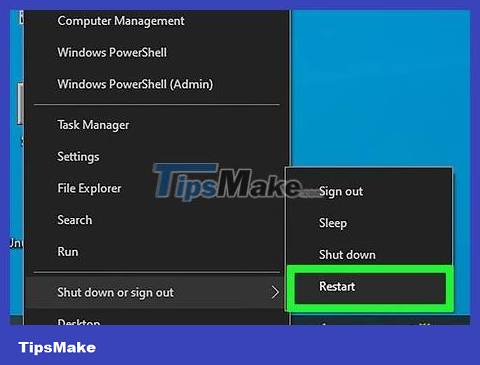
Restart the computer and choose to boot from the USB drive. You may need to press a function key such as F12 (Windows) or Opt (Mac) while the computer is starting.
If you use Windows and can't boot from a USB drive, see this wikiHow article to learn how to check (and change) the boot order.
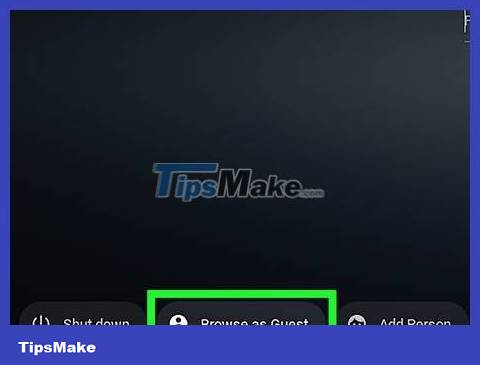
Log in as guest. Although the system requires a Google account login, you can still find the option to log in as a guest in the lower left corner of the screen.
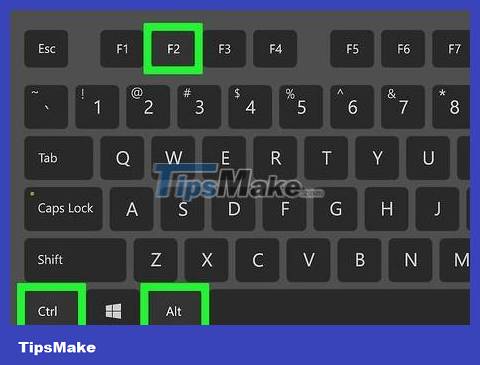
Press Ctrl+ Alt+F2 (Windows) or Ctrl+ ⌘ Cmd+F2 (Mac). Terminal or Command Prompt will open.
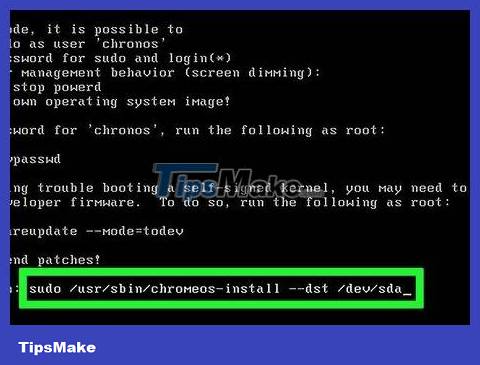
Enter sudo /usr/sbin/chromeos-install --dst /dev/sda. This command will install Chrome OS to the storage drive on your computer.
This command will erase all existing data on the hard drive and install Chromium OS.
If you're asked for a username and password, use "chronos" as the login name and "chrome" instead of the password.
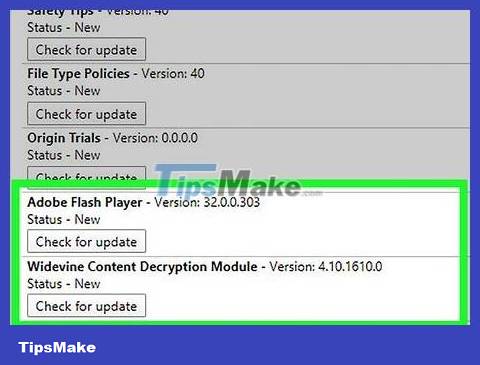
Enable Proprietary Services for Netflix. By default, CloudReady does not include support for Flash or DRM programs (e.g. Wildvine). To install these features, open Settings and go to Plugins. Click Install next to Wildvine Content Decryption Module, Adobe Flash, and Proprietary Media Components.
If you encounter problems, you can visit the CloudReady troubleshooting page to find out.
Run Chromium OS directly from a USB drive
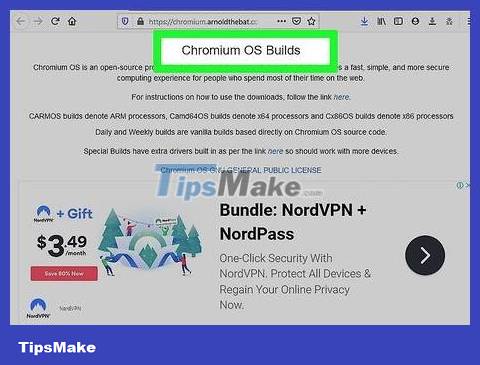
Download the Chromium OS build at http://chromium.arnoldthebat.co.uk . You need to download the latest daily build of Chromium. Builds are usually listed from newest forward, so you can load the first option in the list.
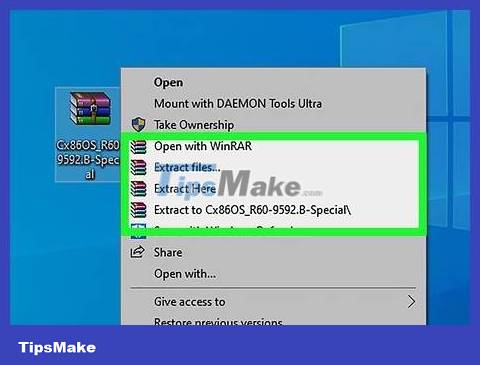
Extract compressed images. The file is downloaded in .img.7z format, so you will need to download decompression software such as 7-Zip (Windows) or Keka (Mac). Both of these software are free.
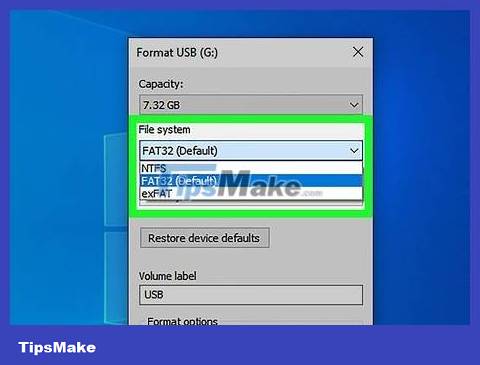
Format the USB drive to FAT32. Note: "MS-DOS FAT" is another name for the FAT32 format.
On Windows, you can go to the USB drive in File Explorer, click Manage , and select Format . In the pop-up window, select Fat32 from the "File System" drop-down list and click Start then OK . All information on that drive will be erased after formatting.
With a Mac, you'll need to access Disk Utility from the Utilities folder in Finder, select the USB drive, and click the Erase tab . Check that the window next to "Format" is the correct "MS-DOS (FAT)" and then click Erase .
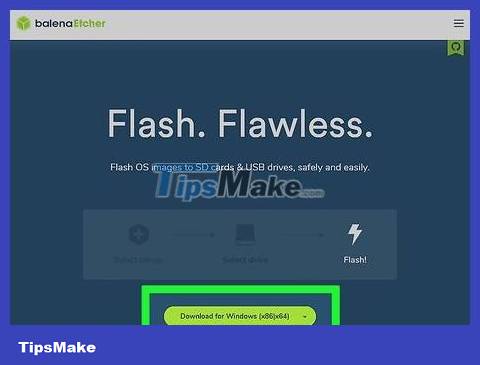
Download Etcher at https://www.balena.io/etcher/ . You need to click on the green download button to change the version if necessary.
Etcher will support writing operating system images to SD card or USB.
Install Etcher after downloading by launching the installer and following the on-screen instructions (Windows), or drag and drop the program icon into the Applications folder (Mac).
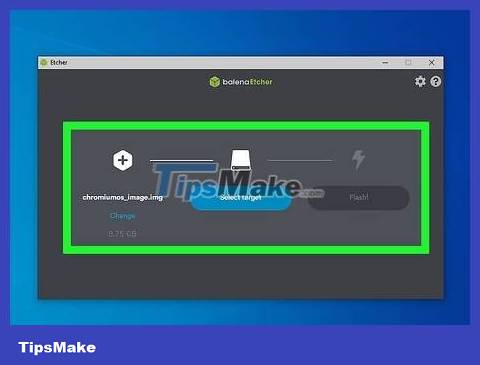
Burn CloudReady to a USB drive. You can find Etcher in the Start menu or Applications folder.
Click Select Image and select the Chromium OS image file.
Click Select Drive and select the USB drive you formatted.
Click Flash to start burning the operating system image to the USB drive. Once this process is complete, Etcher will begin authenticating the final product.
Do not close the program until you see the 100% completion message.
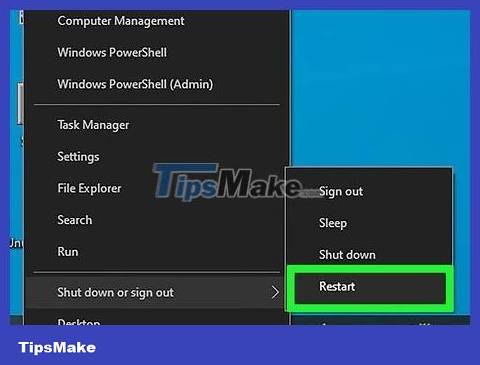
Restart the computer and choose to boot from the USB drive. You may need to press a function key such as F12 (Windows) or Opt (Mac) while the computer is starting.
If you use Windows and can't boot from a USB drive, see this wikiHow article to learn how to check (and change) the boot order.
The computer must boot from the USB drive to run Chromium OS.
Because Chromium OS is web-based, after the operating system boots, the computer needs to be connected to a Wi-Fi network so you can log in as a guest or with a Google account to optimize the experience.